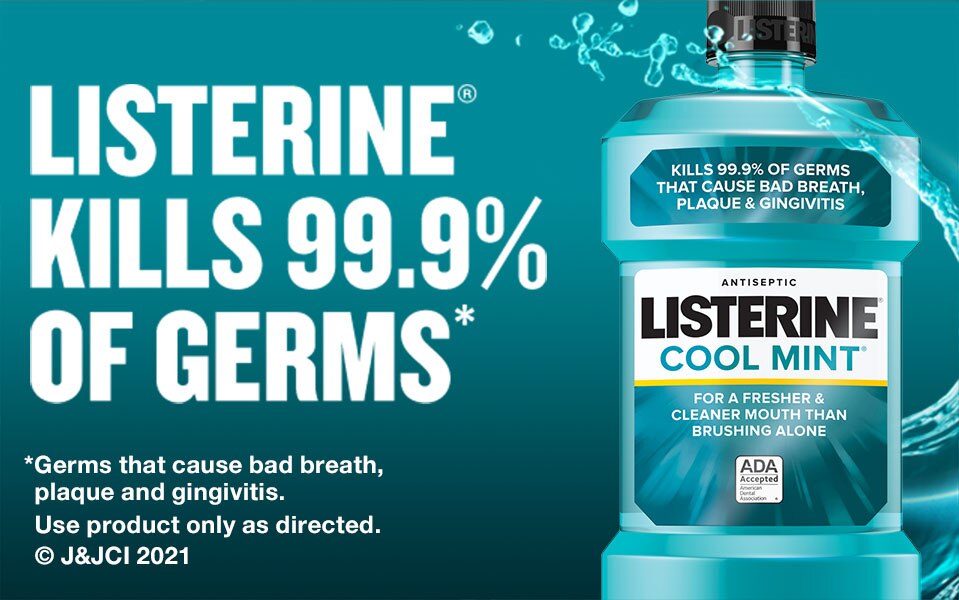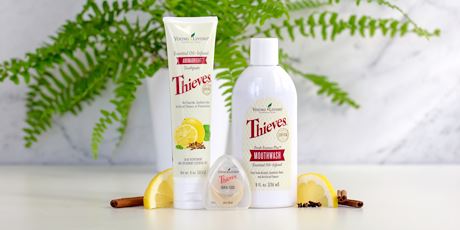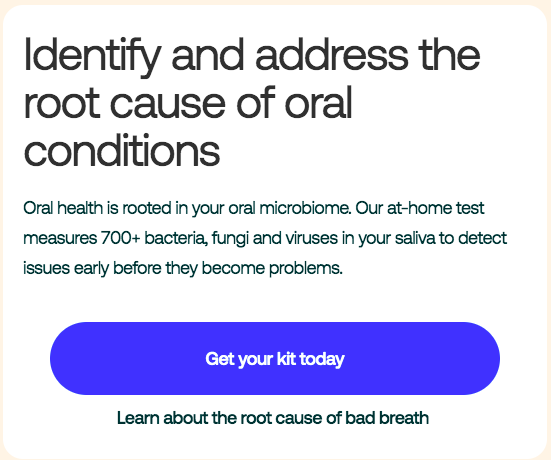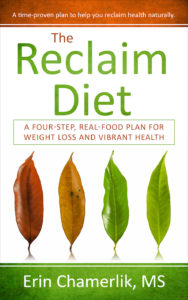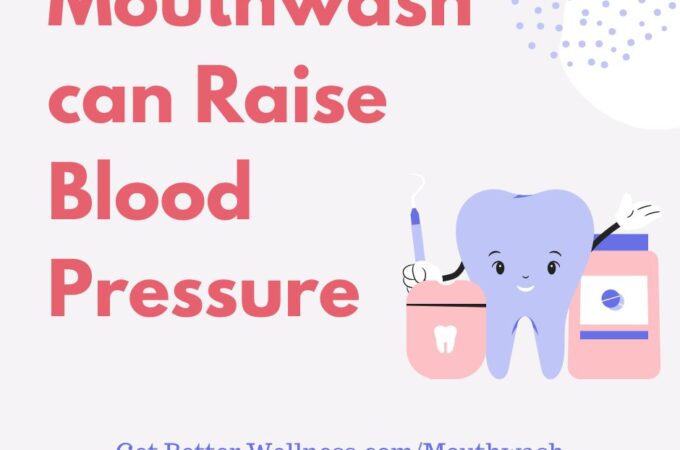
Mouthwash Can Raise Blood Pressure
Most of us have come to believe that we must kill the bacteria in our mouths in order to have good oral health. The American Dental Association promotes the use of Listerine Total Care twice a day to help prevent tooth decay but Listerine is one of the many products with alcohol and/or fluoride that kill the good and the bad bacteria. This tactic is harmful to your oral microbiome and overall health.
The ingredients in Listerine Total Care include: Sodium fluoride, alcohol, sorbitol, poloxamer 407, eucalyptol, flavor, methyl salicylate, menthol, phosphoric acid, sodium saccharin, thymol, disodium phosphate, sucralose, red 40, blue 1. Warning, if you drink more than typically used for swishing, call poison control.
Alcohol in Mouthwash
Mouthwash products with alcohol should be avoided as alcohol is irritating to the oral mucosa and can dry out the mouth. Alcohol will kill both good and bad bacteria in the mouth which disrupts the formation of Nitric Oxide by the good bacteria.
Killing off the good bacteria with alcohol or other toxic ingredients is linked to high blood pressure.
Research published in 2019 showed that antiseptic in mouthwash kills the beneficial bacteria found in the mouth (the oral microbiome). These bacteria play a role in maintaining healthy blood pressure levels.
Study: Mouthwash users had 85% higher risk of physician-diagnosed hypertension compared to less frequent users, and more than twice that of non-users, over the 3-year follow-up of people free of hypertension at baseline. [source]
Alcohol is also linked to oral cancer in the context of mouthwashes [source].
What is the Oral Microbiome?
“The term “microbiome” was coined by Joshua Lederberg, a Nobel Prize laureate, to describe
the ecological community of symbiotic, commensal and pathogenic microorganisms. These microorganisms literally share our body space.” [source]
The oral microbiome is comprised of the microbes found in your mouth, teeth, nooks and crannies and soft tissues. It includes bacteria, fungi, viruses and protozoa. The mouth, or oral cavity, is home to the second largest population of microbes. It is thought that over 700 species of bacteria live in the mouth.
Maybe you have heard of the gut microbiome, our largest population of microbes. The oral microbiome is the beginning of the gut microbiome. The health of your oral microbiome is connected to body health, systemic health.
We need a balance between the good microbes and the pathogenic microbes. There is a symbiotic relationship with mutual benefits. There are microbes that do not cause harm and maintain a check on the pathogenic species by not allowing them to adhere to the soft tissues of the oral cavity. The bacteria become a problem only after they breach the barrier of the commensals, causing infection and disease. [source]
As you can appreciate, this is a beautiful balance that must be maintained and any effort to decimate all the bacteria and other microbes in the mouth will result in a poor outcome for health.
Oral health may affect your heart, brain and risk of death — but be careful with mouthwash!
Prevention is key.
Studies have shown that there is a link between gum infections and stroke, cardiovascular disease and even Alzheimer’s disease. Dozens of different microbes can cause these diseases, and prevention is the key.
- Diet. It is important to eat a low carb, real food diet. Grains are problematic as well as other starchy carbs and sugar. Learn more here in my book, The Reclaim Diet.
- Learn proper brushing and flossing techniques here.
- Try oil pulling.
- Minimize your consumption of acidic drinks as much as possible. You can also use a pH balancing mouth rinse after consuming acidic beverages like coffee, tea, kombucha and wine. Here is a recipe.
“However, research over the last several years suggests that advanced periodontitis (stage IV gum disease) might not just be associated with Alzheimer’s. There’s a chance it could be the root cause.” [source]
We Do Not Want to Use Mouthwash that Kills 99.9% Germs on Contact
Read all the ingredients on mouthwash products and avoid alcohol, sodium fluoride and cetylpyridinium chloride which are antiseptics that aim to kill all microbes in the oral cavity. Another problem is that these mouthwash products include other toxic, harmful or unwanted ingredients like: poloxamer 407, petroleum-derived dyes, propylene glycol, polysorbate 20 and sweeteners (saccharin, sorbitol, sucralose).
Avoid all oral products with these ingredients including mouthwashes, toothpastes, lozenges, throat sprays, breath sprays, and nasal sprays.
How the Oral Microbiome is Harmed by Regular Mouthwash Use
Nitric oxide (NO) is an important molecule in the body that is involved in many processes within the body. It is involved in insulin signaling, improves sleep, lowers cholesterol, prevents high blood pressure, plays a role in respiration, and enhances immunity, memory, and learning. [source]
Lower nitric oxide (NO) bioavailability is associated with hypertension.
Antibacterial mouthwash depletes oral nitrate-reducing bacteria, and decrease systemic nitric oxide bioavailability. We need oral bacteria to help with the availability of NO which has antimicrobial activity against several periodontal pathogens. [source] In other words, mouthwash is killing the good bacteria in the mouth that are fighting oral pathogens for us.
The healthy bacteria in the mouth are important for the bioavailability of Nitric Oxide. Antibacterial mouthwash is known to reduce oral bacteria and gingivitis, but it is important to consider the impact that mouthwash has on Nitric Oxide. Prescription mouthwash using Chlorhexidine increased blood pressure among hypertensive and normotensive individuals.
Antibacterial mouthwash reduces oral nitrite production by 90% and plasma nitrite levels by 25%, causing an increase in blood pressure. [source]
Essential Oils in Mouthwash without Alcohol
“Numerous essential oils used in mouthwashes, notably carvacrol (oregano), thymol (thyme), and eugenol (clove), have demonstrated bactericidal effects against oral pathogens. [source] [source]
While essential oils also kill bacteria and microbes in the mouth, the friendly bacteria are not harmed according to these studies. The essential oils tested were found to be compatible with beneficial microbes. [source] [source] [source]
Colloidal Silver in Mouthwash
Colloidal silver has antimicrobial properties. It can be used in alcohol-free mouthwash or added to toothpaste to help improve oral health. Its antibacterial properties can help prevent tooth decay and gum disease.
A 2019 study concluded, “These results indicate that use of a colloidal silver gel is an effective way to inhibit the formation of biofilms by the most common bacteria implicated in oral plaque formation.”
“In the 1980s, Larry C. Ford, MD documented over 650 different disease-causing pathogens that were suffocated within minutes after being exposed to small amounts of silver.” Colloidal silver mainly targets pathogenic microbes, leaving the healthy bacteria alone. [source]
Read more about colloidal silver here.
Is there a Safe Mouthwash?
The mouthwash I use contains several key essential oils (peppermint, clove, cinnamon, lemon, eucalyptus and rosemary) and colloidal silver.
The benefits of using essential oils in mouthwash include: antioxidant, anti-inflammatory, antibacterial, reduce biofilm related to cavities, useful for overgrowth of candida in the mouth (oral candidiasis or oral thrush), anti-fungal action, inhibits staphylococcus. [source]
I use Thieves Mouthwash a few times a week because it is alcohol- and fluoride-free. Thieves Mouthwash uses colloidal silver and essential oils and I consider it a safe mouthwash to use.
What About Dentist-Prescribed Mouth Rinse?
“Some dentists prescribe chlorhexidine, an antimicrobial mouthwash, to kill the microbes in the mouth that may be contributing to gingivitis (inflammation of the gums). Chlorhexidine is associated with side effects such as change in taste, increased tartar on the teeth, and staining of the teeth, as well as less common effects like swollen glands on the side of the face or neck, or mouth or tongue irritation. Chlorhexidine mouthwash can kill good bacteria in the mouth, causing unexpected problems elsewhere in the body, such as high blood pressure.” [source]
Find & fix the root cause of oral conditions like bad breath, chronic tooth decay & gum inflammation with the world’s first oral health saliva test.
- Chronic bad breath
- Inflamed gums
- Oral thrush
- Burning mouth syndrome
- Gum recession
- Weird tastes
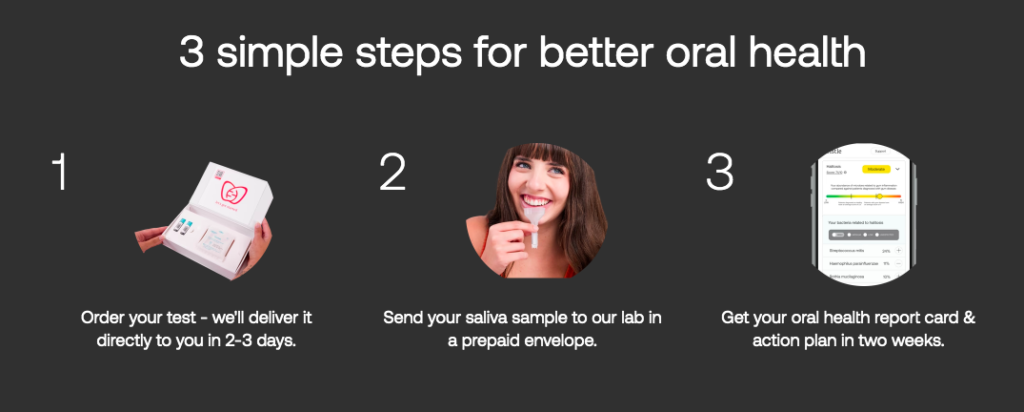
Learn more about the Oral Microbiome
Podcast: The Oral Microbiome and Systemic Disease, Doug Thompson, DDS
Podcast: Oral Health and the Microbiome with Dr. Elle Campbell
Podcast: Oral Bacteria and Your Health with Dr. Mark Burhenne
Get Better Wellness is reader supported. This post may contain affiliate links, which means that I may receive a small commission when you buy from links on this site. This is at no cost to you.
Recommended
-
Dandelion for Liver Support and Health BenefitsJuly 20th, 2024
-
Modified Citrus PectinJuly 11th, 2024
-
Bentonite Clay Mask for Face and ArmpitsJuly 8th, 2024
-
Two Supplements for Erectile DysfunctionJune 30th, 2024

